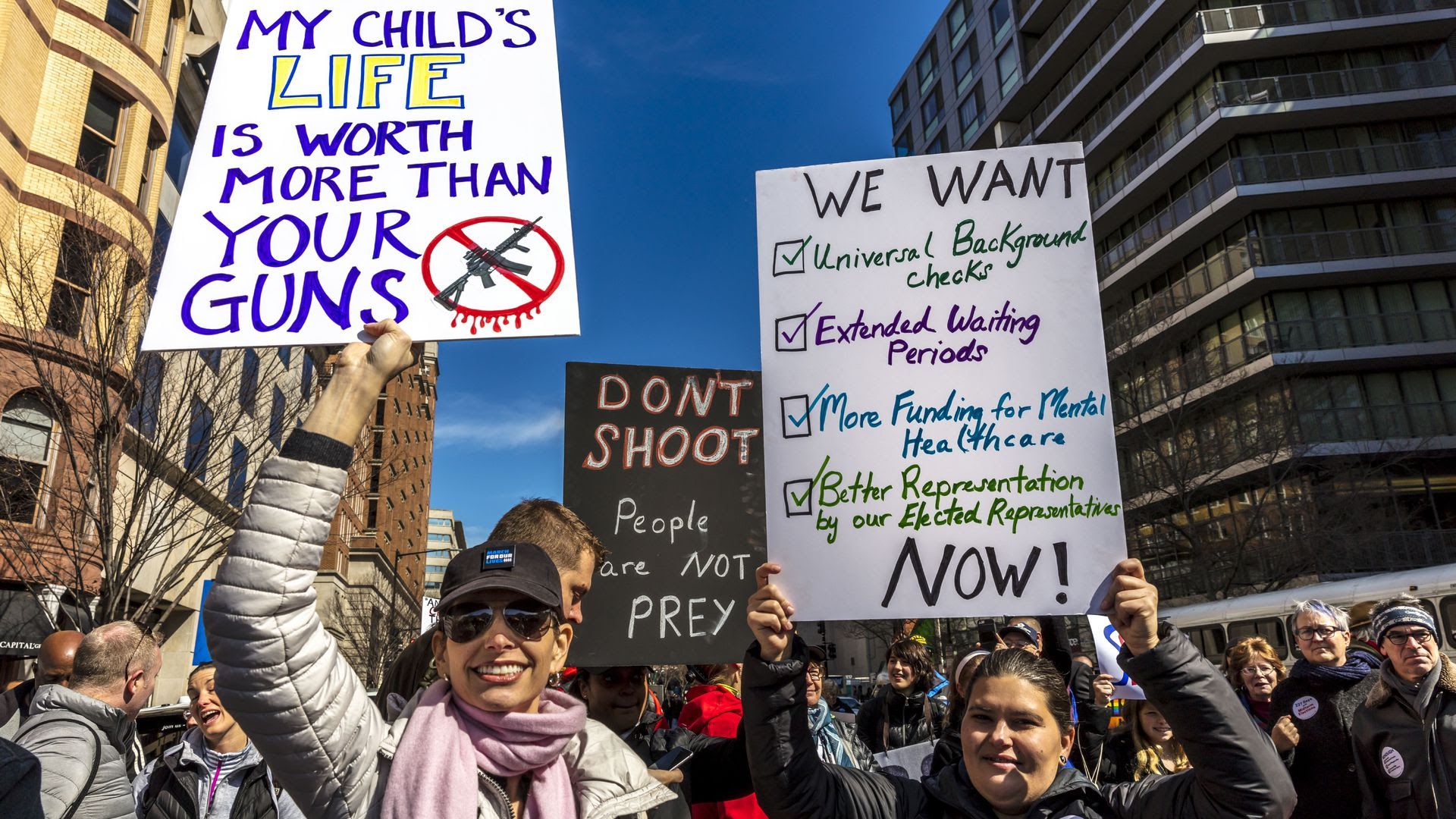Oct 30, 2018
Suburban women break for Democrats on gun control
Add Axios as your preferred source to
see more of our stories on Google.

"March for Our Lives" rally in D.C. Photo: Visions of America/UIG via Getty Images
Add Axios as your preferred source to
see more of our stories on Google.

"March for Our Lives" rally in D.C. Photo: Visions of America/UIG via Getty Images